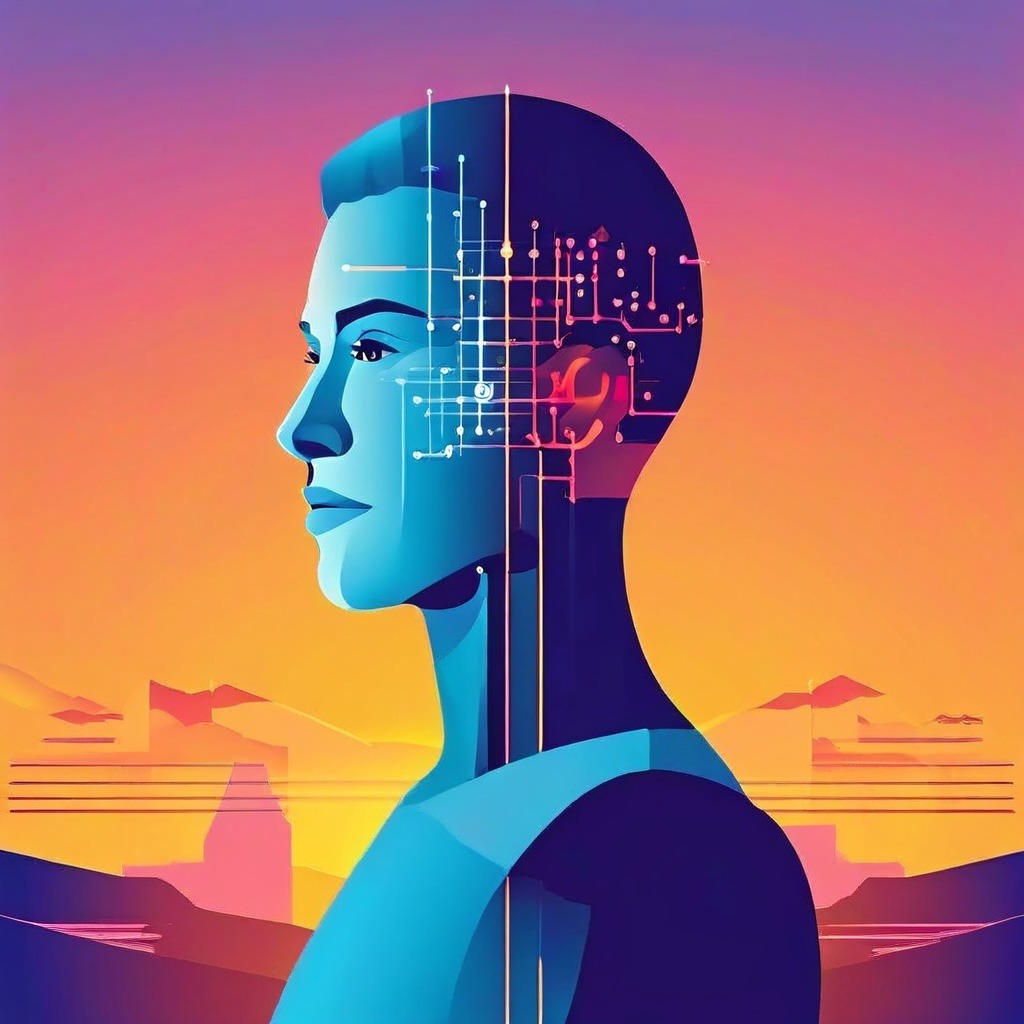Artificial intelligence (AI) has experienced explosive growth in recent years. From the ever-popular ChatGPT to the code-generating power of Copilot, we’re seeing AI seep into nearly every aspect of our technological world. One company at the forefront of this AI revolution is Anthropic, and their latest release, Claude 3, represents a significant leap forward in the capabilities of large language models (LLMs).
What is Anthropic?
Anthropic is an AI safety and research company founded in 2021 by former OpenAI researchers. The company is driven by a mission to build reliable, interpretable, and steerable AI systems. Anthropic’s work centers heavily on the concept of Constitutional AI, where an AI system is guided by a short set of principles that promote beneficial and safe behavior.
Claude: The First Iteration
The first iteration of Claude, Anthropic’s foundational LLM, made waves in the AI community in late 2022. While not publicly released, Claude demonstrated capabilities that rivaled, and in some cases surpassed, the performance of popular models like ChatGPT. It was notably skilled at following instructions and exhibited a deeper understanding of context, making it less prone to nonsensical or irrelevant output.
Claude 3: A Suite of Models
Anthropic’s release of Claude 3 in early 2024 was not a single model but a suite of models tailored to different applications:
- Claude 3 Opus: The most powerful model in the suite, Opus is designed for maximum intelligence and reasoning capabilities.
- Claude 3 Sonnet: Sonnet strikes a balance of intelligence and speed, making it well-suited for a wide range of enterprise use cases at a competitive price point.
- Claude 3 Haiku: Haiku prioritizes speed and responsiveness, offering near-instant output for applications such as real-time chatbots.
This tiered approach allows businesses and developers to select the Claude 3 model that best suits their specific needs and budgets.
Key Advancements in Claude 3
Claude 3 builds upon the strong foundation of the original Claude, introducing several important improvements:
- Enhanced Reasoning: Claude 3 demonstrates a substantial leap in reasoning capabilities across various domains. It can solve complex logic puzzles, draw inferences from subtle details, and identify cause-and-effect relationships within intricate scenarios.
- Improved Factual Accuracy: Claude 3 is less prone to generating factually incorrect statements, a common issue with earlier LLMs. This enhanced reliability is vital for applications where accuracy is critical.
- Constitutional AI in Action: Anthropic’s focus on Constitutional AI translates into Claude 3 exhibiting a greater understanding of nuanced instructions. The model is better equipped to handle complex requests while adhering to underlying ethical and safety guidelines.
Real-World Applications of Claude 3
The capabilities of Claude 3 unlock a vast array of real-world applications:
- Next-Generation Customer Support: Claude 3 can power sophisticated customer support chatbots that provide quick, accurate, and personalized assistance. The model can understand complex inquiries, access up-to-date information, and present responses in a clear and concise manner.
- Enhanced Creative Writing Tools: Writers can leverage Claude 3 to brainstorm ideas, generate compelling storylines, refine their prose, and even translate content across languages.
- AI-Powered Research Assistants: Researchers can use Claude 3 to rapidly sift through vast amounts of scientific literature, summarize key findings, identify patterns, and even suggest novel research hypotheses.
- Code Generation and Optimization: Building on Copilot’s foundation, Claude 3 can assist developers by generating code snippets, suggesting improvements and optimizations, and explaining complex algorithms in plain language.
Challenges and Considerations
Like any cutting-edge technology, Claude 3 presents some challenges and considerations:
- Bias and Fairness: All LLMs are susceptible to biases present in the data they were trained on. It’s essential to continuously monitor Claude 3’s output to mitigate potential harmful biases that can perpetuate stereotypes or discrimination.
- Misinformation: Despite enhanced factual accuracy, it remains possible for Claude 3 to generate incorrect or misleading information. Users must critically evaluate the model’s output, especially when dealing with sensitive or important topics.
- The “Black Box” Problem The internal workings of large language models remain relatively opaque. While Anthropic prioritizes interpretability, it’s still difficult to fully understand how Claude 3 arrives at its decisions.
- The Cost of Progress: Access to the most powerful Claude 3 models is likely to come at a premium
The Future of AI with Anthropic and Claude 3
The advancements embodied in Claude 3 point to a transformative future shaped by increasingly powerful and versatile AI systems. Let’s explore some of the potential implications:
- Democratization of AI: As AI models become more accessible and the cost of using them decreases, businesses of all sizes will have the opportunity to harness the power of AI. This democratization can drive innovation and efficiency across many industries.
- Human-AI Collaboration: Claude 3’s enhanced reasoning and communication skills pave the way for seamless collaboration between humans and AI systems. AI can function as a powerful assistant, collaborator, and creative partner, amplifying human capabilities.
- The Evolution of Search: Searching for information may become more conversational and personalized. Instead of simple keyword searches, users could engage in natural language dialogues with AI systems, providing nuanced context to refine search results.
- Ethical AI at the Forefront: Anthropic’s emphasis on safety and responsibility sets a vital example for the AI industry. The development of AI systems that are beneficial, fair, and respect human values is essential for ensuring public trust in emerging technologies.
A Note on Responsibility and Governance
While the potential benefits of Claude 3 are undeniable, addressing the ethical, societal, and regulatory implications of increasingly powerful AI systems is crucial. It’s paramount to consider:
- Managing Job Displacement: As AI automates more tasks, careful consideration must be given to potential job displacement and strategies for workforce retraining and adaptation.
- Algorithmic Transparency: Understanding the decision-making processes of complex AI models like Claude 3 is essential for ensuring accountability and identifying potential biases.
- Governance Frameworks: Proactive development of international standards and regulatory frameworks is needed to guide the responsible deployment and use of AI.
Summary
Anthropic and Claude 3 represent a significant milestone in the evolution of artificial intelligence. With its enhanced capabilities, commitment to safety, and tiered model structure, Claude 3 sets a new benchmark for powerful yet responsible LLMs.
The applications of Claude 3 are far-reaching, transforming industries and fundamentally altering how we interact with technology. As we navigate this rapidly evolving landscape, the development and use of these powerful tools must prioritize ethics, transparency, and societal well-being.
Invitation to the AI Community
Given the rapid pace of AI development, staying informed is key. I invite you to share your thoughts on Anthropic, Claude 3, and the future of AI in the comments below. Let’s engage in a dialogue about the potential benefits, challenges and safeguards needed as we move forward.
Read more about Anthropic and Claude 3 HERE





